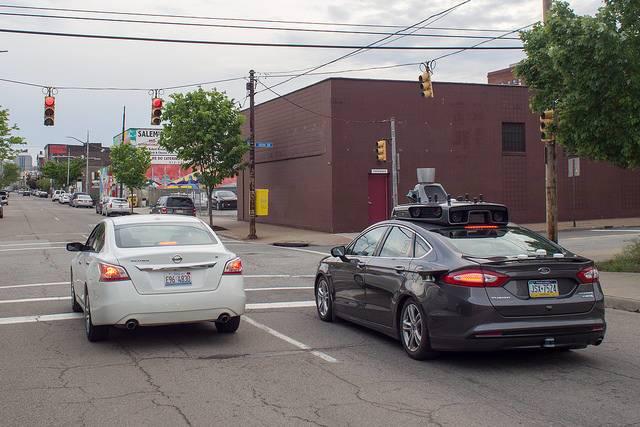
Uber is expanding its self-driving car testing operations to Canada, Fortune magazine reported this week.
In what Canadian newspaper the Globe and Mail described as yet another Silicon Valley “raid” of our northern neighbor's artificial intelligence talent, the ridesharing company hired a leading expert in autonomous car technology from the University of Toronto. Uber reportedly added eight of the university’s students to its local payroll and indicated it plans to bring on more hires at its new Advanced Technologies Group center.
Uber CEO Travis Kalanick was certainly eager to share the news on Monday, as the announcement was clearly a welcome diversion from the numerous public relations gaffes that plagued the company over the past year.
“Toronto has emerged as an important hub of artificial intelligence research, which is critical to the future of transportation,” Kalanick wrote in a blog post yesterday. “That’s why we’re also making a significant multi-year financial commitment.”
But part of the reason for Uber’s move into Canada’s largest city may be that it has worn out its welcome elsewhere.
Uber is betting heavily on autonomous vehicle technology as the company envisions a future where driverless cars ferry passengers from home to work and then to social engagements after hours. The company was accused of “arrogance” after refusing to apply for permits that the city of San Francisco said were necessary in order to test its self-driving cars. Uber temporarily grounded that fleet as the outcry grew louder, though its self-driving vehicles were spotted regularly on San Francisco’s streets during most of this year.
Uber also appeared to have worn out its welcome in Pittsburgh, a city once known for its industrial and steelmaking might but that has since transformed itself into a leading technology research and development center. One of the western Pennsylvania city’s universities, Carnegie Mellon, has long enjoyed a reputation as a leading hub of artificial intelligence and robotics, which in turn lured Uber to open a large technology center in the city in 2015.
Both civic leaders and residents complained that Uber did not keep its end of the bargain with the local community, and Pittsburgh’s mayor has been quick to criticize the company for conduct that came across as predatory to many residents. And Uber’s reticence to support Pittsburgh’s bid for a multimillion-dollar smart cities grant that instead went to Columbus, Ohio, left the city’s leadership resentful.
Accusations of turmoil within Uber’s management ranks did not help the company as it has tried to fend off accusations of sexual harassment and a lack of diversity, along with allegations of dubious business practices that pushed Google to file a lawsuit against the company.
While the overall history of self-driving cars shows that they promise to be far safer than those driven by humans, Recode correspondent Johana Bhuiyan described Uber’s progress on this front as a “mess.” Recode obtained internal documents indicating that Uber’s progress on self-driving progress has been “unsteady” at best. Chaos and frustration led many top employees to leave the company, adding to the spate of bad news that Uber cannot seem to stanch.
And therein lies the possible explanation for Uber moving across the border, even though the professor the company hired, Raquel Urtasan, is widely regarded as a leading expert in autonomous vehicle technology.
Nevertheless, while Uber has burned many bridges in the U.S., commentary from some Canadians indicate that such bridges in Canada may not stand for too long. Jim Balsillie, former CEO of RIM, the maker of the Blackberry, criticized Uber’s move into Toronto as one that will thrive from Canadian taxpayers’ subsidies of university research – benefiting Uber and the U.S. Treasury while doing little to boost Canadian employment and revenues in return.
Image credit: Foo Conner/Flickr

Leon Kaye has written for 3p since 2010 and become executive editor in 2018. His previous work includes writing for the Guardian as well as other online and print publications. In addition, he's worked in sales executive roles within technology and financial research companies, as well as for a public relations firm, for which he consulted with one of the globe’s leading sustainability initiatives. Currently living in Central California, he’s traveled to 70-plus countries and has lived and worked in South Korea, the United Arab Emirates and Uruguay.
Leon’s an alum of Fresno State, the University of Maryland, Baltimore County and the University of Southern California's Marshall Business School. He enjoys traveling abroad as well as exploring California’s Central Coast and the Sierra Nevadas.














